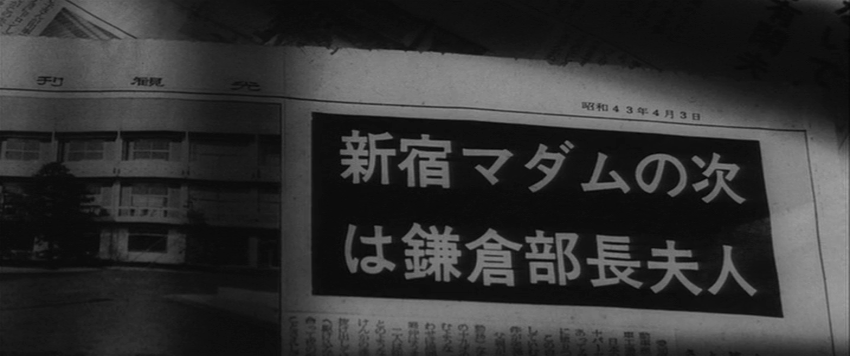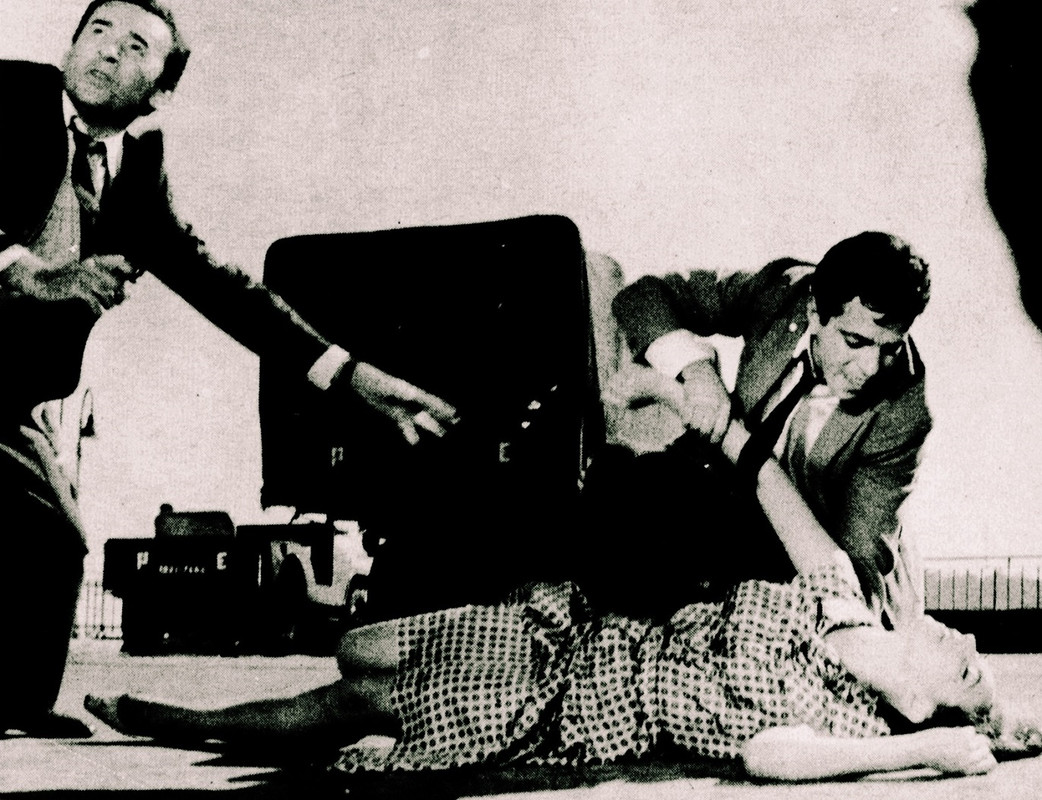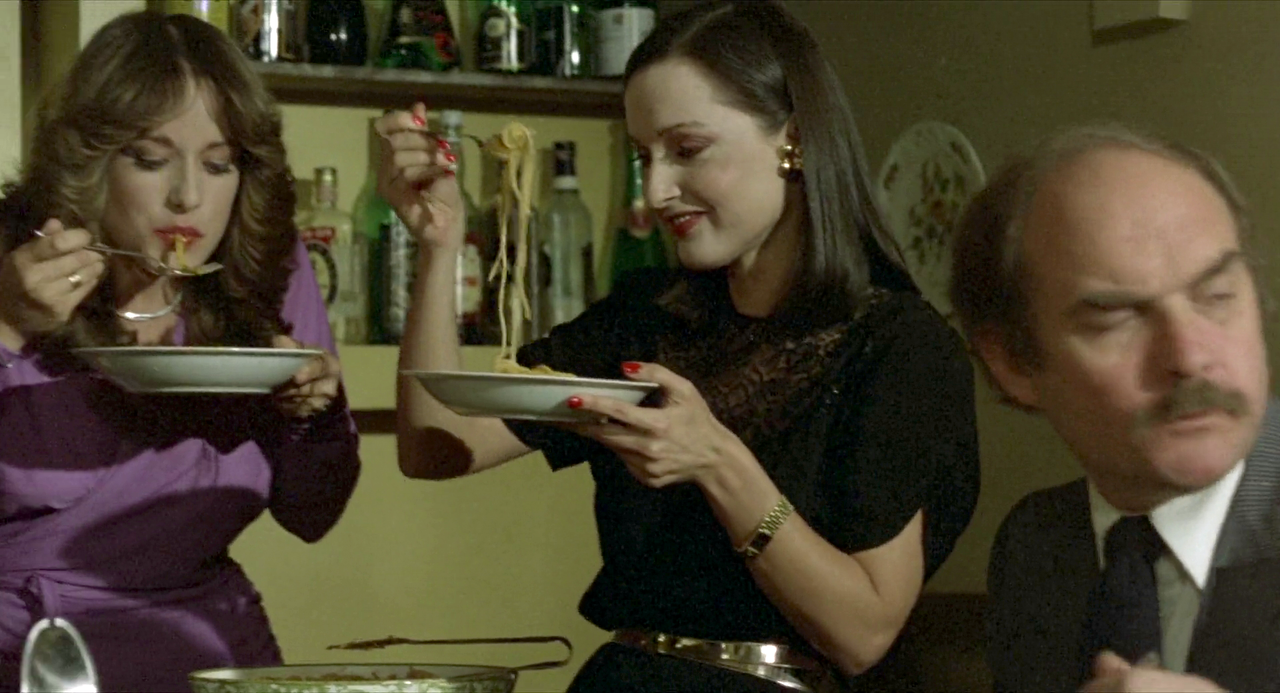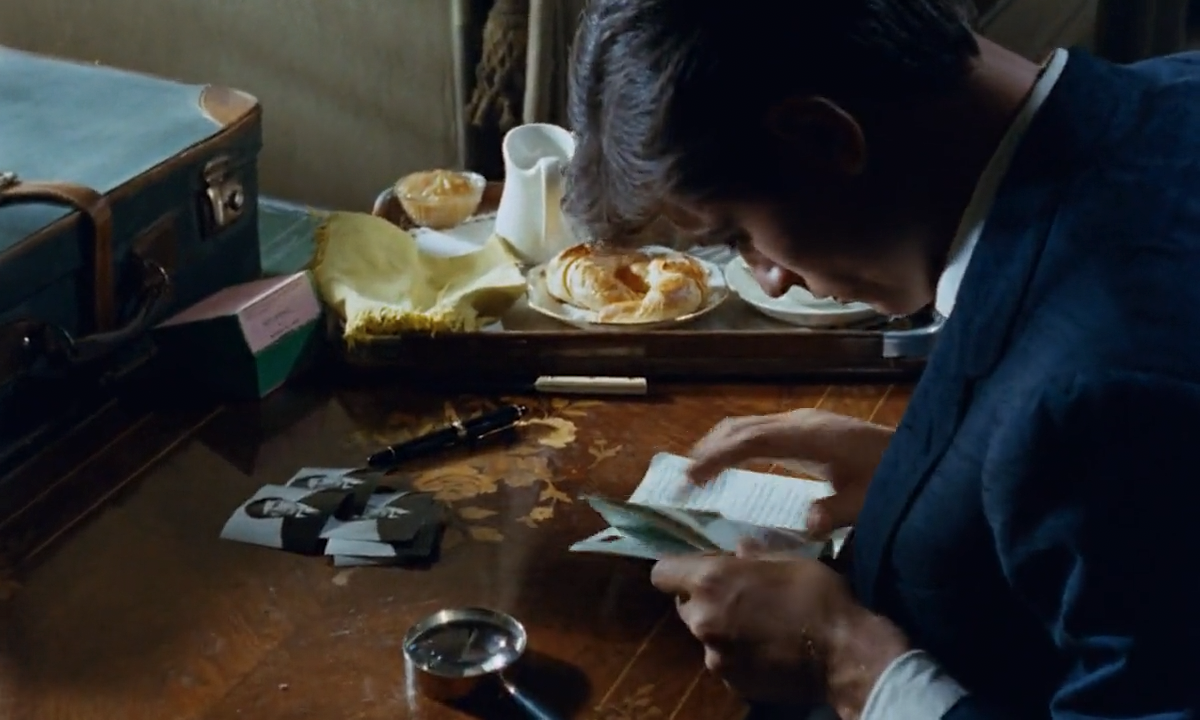“With bar hostesses, there's a type who are likely to be murdered.”みな殺しの霊歌 [Minagoroshi no reika / I, the Executioner] (Tai Katō, 1968)
Apr
3
1968

A newspaper headline for April 3, 1968: “COMPANY DIRECTOR'S WIFE NEWEST VICTIM”. DP: Keiji Maruyama.
thriller
“Stand by, there's trouble coming soon.”The Man Who Knew Too Much (Alfred Hitchcock, 1934)
Mar
21

Abbott (Peter Lorre). DP: Curt Courant.
– Bob Lawrence
Invasión [Invasion] (Hugo Santiago, 1969)
Mar
9
Bobby Fischer – 1943

Don Porfirio (Juan Carlos Paz) in front of a map of Aquileia. DP: Ricardo Aronovich.
Strategy for Bobby Fischer's birthday (1943).
People meticulously plan, move, and countermove in response to an invasion.
O 5º Poder [O Quinto Poder / The Fifth Power] (Alberto Pieralisi, 1962)
Jan
27
television

A woman sprawled out on the ground. A man tries to revive her while another reaches out in concern. DP: Özen Sermet.
Turn on your television on the day* in 1926 John Logie Baird demonstrated the first working TV.
An unknown foreign agent manipulates Brazil's radio en television antennas to emit subliminal messages to the oblivious population. Slowly, society descends into violent chaos.
O 5º Poder precedes Ray Nelson's story Eight O'Clock in the Morning by one, and John Carpenter's adaptation They Live by 26 years. But what's much more fascinating is this film's place in Brazilian history: right between Professor Baskarán's – hypnotist Carlos Pedregal – televised mass hypnosis experiments from 1958, and the violent coup of 1964.
In how far was the population primed for this revolt? And how much, are you?
* In reality this was on January 26, 1926.
Compartiment tueurs [The Sleeping Car Murder] (Costa-Gavras, 1965)
Nov
8

Eliane Darrès (Simone Signoret) – comédienne, by herself – takes a long hard look at her table-set-for-two. DP: Jean Tournier.
“So this is the team, ey? A priest, a detective near retirement, and a young moron rookie of a cop… Terrific.”Rosso sangue [Absurd / Monster Hunter] (Joe D'Amato, 1981)
Nov
2
spaghetti

Pretending to be set somewhere in the US, people watch an American Football match on TV. Being Italian, their go-to snack is spaghetti. DP: Joe D'Amato.
– Sgt. Ben Engleman
La horse [Horse] (Pierre Granier-Deferre, 1970)
Aug
23
baguette

Auguste Maroilleur (Jean Gabin) at the head of a long table, covered in Good Things (wine, butter, coffee, and fresh milk). He cuts a baguette with his pocketknife. DP: Walter Wottitz.
“Matto, caldo, soldi, morto… girotondo…”Vergogna, schifosi!… [Dirty Angels] (Mauro Severino, 1969)
Aug
14
fruit

A group of people in skimpy swimwear sits on space-agey white plastic seating – Archizoom's radical Superonda (1967) – while decadently eating luxurious tropical fruit from a round table that futuristically descends from the ceiling via a steel pole. DP: Angelo Lotti.
“Why bother having money when you can spend other people's?”Plein soleil [Purple Noon] (René Clément, 1960)
Jun
15
croissants

Tom Ripley (Alain Delon) going though his passport over breakfast. Multiple passport photos, a fountain pen, and a magnifying glass take precedence over his fresh croissants. DP: Henri Decaë.
– Philippe Greenleaf
“Mr. Cadell got a bad leg in the war for his courage. And you've got your sleeve in the celery, Mr. Phillip.”Rope (Alfred Hitchcock, 1948)
Jun
9

A man in a dark suit has his clenched hand on top of a stack of fancy gilded dinner plates. He's holding a piece of rope, just an ordinary household article. DPs: William V. Skall & Joseph A. Valentine.
– Mrs. Wilson